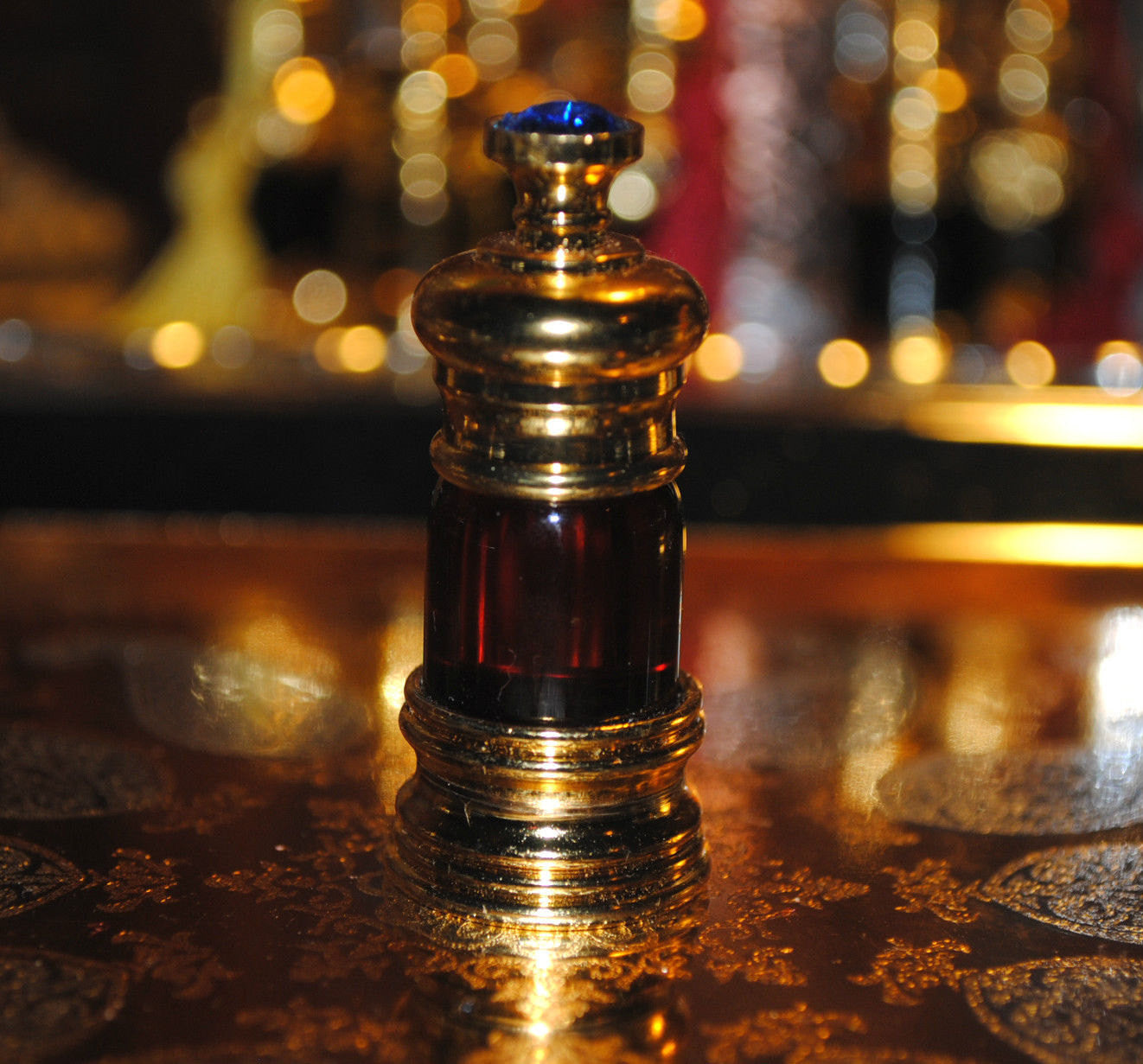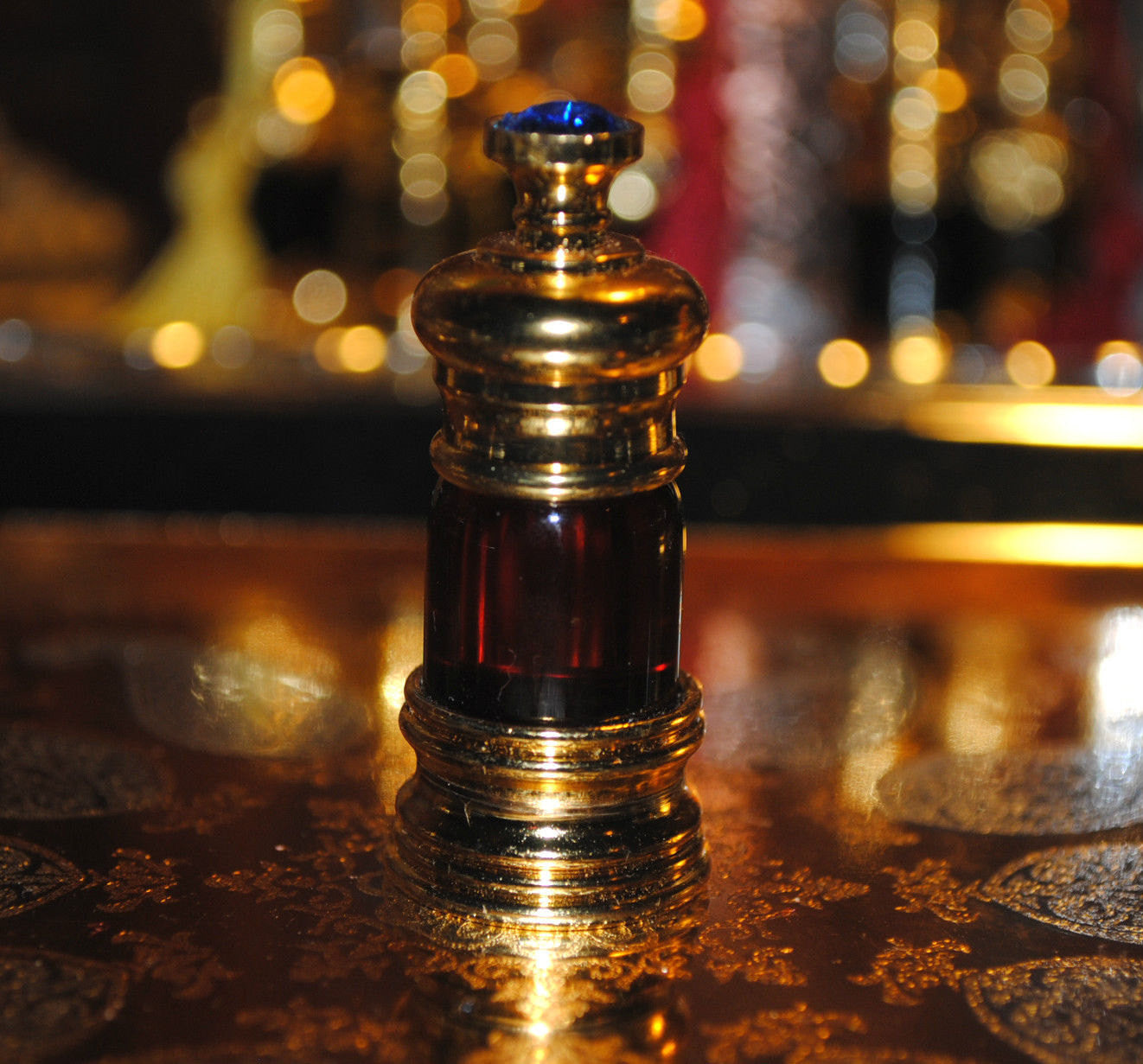Agarscentsbazaar
Pheromone-4 Mukhallat Natural Perfume 3ml
Pheromone-4 Mukhallat Natural Perfume 3ml
Couldn't load pickup availability
... HYPNOTIZING & SEDUCTIVE
The ultimate aphrodisiac ... Pheromone-4... an original signature scent offered only at Agarscents Bazaar by the Sharif Laroche Collection.
Three Rare Gems of Pure Musk in a mesmerizing composition with oceanic-musky Ambergris... the best from the animal kingdom on land and in water. The famous four of fixatives - scented treasures of natural amorous notes - Beaver (Castoreum), Civet, Deer Musk and Ambergris - are indeed hypnotizing, intense and seductive…
Try our Pheromone-4 and be enveloped in the ambiance of sensual delight, of pheromonous notes of enchantment and intrigue... and be aware of the affectionate attention that might ultimately follow.
WHAT ARE PHEROMONES
The word pheromone is derived from the Greek phero, which means "to transport” and hormone meaning "to stimulate”. Pheromones are chemicals that are secreted or excreted by an individual and can trigger certain behavioural or social responses in members of the same species. Alarm pheromones, food trail pheromones and sex pheromones affect behaviour among many insects, vertebrates and plants, acting like chemical messengers between individuals. The chemical, neurological and physiological responses by the recipients are natural innate reactions to these chemical signals. Sex pheromones emitted by males and females tell other individuals about their species, well-being, reproductive ability, availability, and desire. Certain substances, compounds, and stimulants increase the level of sex hormones; aphrodisiacs of this type can be found in plants, herbs and animal substances - pure musk and true ambergris have been found to have aphrodisiac qualities, "pheromonal" activity, triggering physiological and behavioral responses by their natural odour.
WHAT IS CIVET
The Civet is a small sized, slender omnivorous solitary mammal which is native to tropical (southeast) Asia and Africa. Out of the dozen species of civet, the African (Palm) Civet (Civettictis civetta) is the most known, as this is the main species the civet musk used within perfumery comes from. The African Civet is uniquely recognized with black and white stripes and blotches, large hind quarters and an erectile dorsal crest. Names used for the Civet are "toddy cat" in English and "musang" in Malay, though referring to the African Civet as 'civet cat' is misleading, as this animal is not a feline, in fact, related to weasels and mongooses.
WHAT IS DEER MUSK
The Musk Deer refers to one of the seven species that belong to the Moschus Moschidae, a smaller primitive deer compared to the cervid, or true deer. This type of deer is found in the Himalayas; Nepal, India, Tibet, China, Siberia and Mongolia. Moschids have longer hind legs than front legs and lack antlers, but the male deer possesses tusk-like teeth and a musk gland. The substance with a pungent, penetrating odour produced by the musk gland "pod” of the Moschid is the actual pure Deer Musk.
WHAT IS CASTOREUM
Castoreum is referred to as the yellowish secretion from the castor sac (scent gland) of the North American Beaver (Castor Canadensis) or the European Beaver (Castor Fiber) - two different types with different scents and appearance. This castoreum secretion helps the beavers keep their fur shiny and water repellent. Both male and female beavers use the pheromone-laced castoreum mixed with urine to mark their territory. This secretion is known for its use in perfumery, medicinal use and as a food additive.
WHAT IS AMBERGRIS
Ambergris (Ambre Gris, Grey Amber, Ambergrease, Ambra grisea) is an intestinal solid and flammable secretion produced by the male sperm whale. Giant squid, the favorite diet of sperm whales, contains indigestible beaks which irritate the stomach lining of the whale, causing it to secrete the waxy substance which serves to protect the digestive system of the whale and facilitate an easier passing of these hard objects. In fact, when this sticky mass is expelled from the sperm whale, it is not as vomit, which is the common misconception, but as waste. Ambergris float is found in different shapes and sizes, and can be as small as 1/2oz (14g) or larger than 100lbs (45kg). Fresh Ambergris can be found in two different types, black, sticky-soft and tar like, or as pale white soft lumps with black streaks. This precursor to matured ambergris has a strong fecal smell, the closest for comparison would be scented cow dung. After floating in the ocean sometimes for decades the pungent odor will change considerably and cure by becoming earthy, sweet, seaweed-seawater (marine) like, reminiscent of tobacco or musty old wood; animal musky with a peculiar sweet odor unique to ambergris. Depending on the quality of the ambergris there can be a great variation in the fragrance.
...
Share

